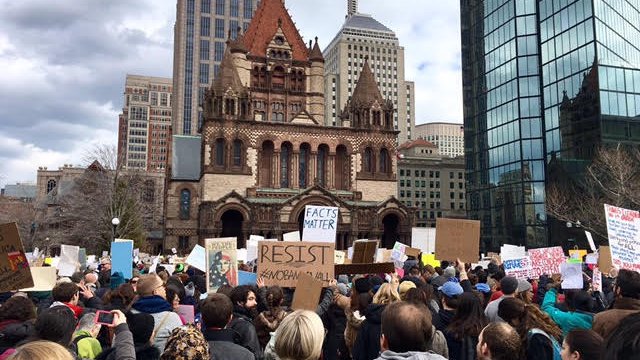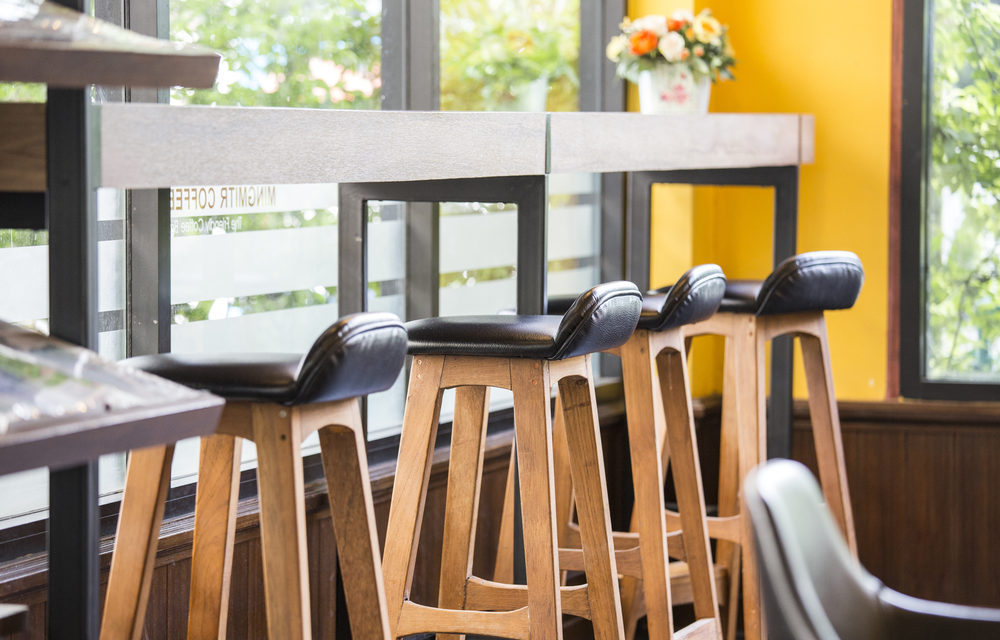With the many regulations imposed on the restaurant industry over the past eight years by the Obama Administration, it’s no secret the two didn’t exactly share a love affair. Overtime, menu labeling and increased minimum wage regulations were just a few areas where the administration and restaurateurs often butted heads.
Many were hoping things between the industry and the government would be a little less strained under a Donald Trump presidency, but it’s safe to say their relationship status could still be classified as “#Complicated.”
That’s because while many restaurant executives, as well as the National Restaurant Association and the National Retail Federation, have shown support for the president’s focus on business owners and his nomination of CKE CEO Andy Puzder as his labor secretary, others are concerned with some of Trump’s actions since taking the Oval Office.
Is this fight really about avocados?
Trump’s proposed 20-percent tariff on Mexicans goods, in order to pay for a wall to be constructed along the U.S. and Mexican border, is one such policy. Although the NRF has supported Trump in the past, the group isn’t on board with a tax.
“The notion that Mexico is going to pay for this is wrong. This is going to be paid for by American consumers,” David French, NRF senior VP of government relations, stated in an email to FastCasual. “A tariff is a just a tax on consumers. Americans are already paying billions of dollars in tariffs, and this is just going to result in one more price increase.”
If the tariff is implemented, restaurateurs may find it hard to source and afford a variety of produce items usually purchased from Mexico, including avocados.

More than 50 percent of U.S. households regularly consume avocados, which means that even at full production levels, the U.S. cannot fully supply the demand. That creates a complementary relationship between U.S. and Mexican avocado farmers, according to the Avocado Producers and Exporting Packers Association of Mexico.
“With its unique climate and ability to grow avocados year-round, Mexico is the only region in the world that can sufficiently help meet U.S. avocado consumption, supplying 80 percent of the U.S. market, Ramón Paz, adviser, Avocado Producers and Exporting Packers Association of Mexico, said in an email to FastCasual.
Overall, avocado imports benefit both the Mexican and U.S. economies, and studies show avocado imports contribute to the U.S. economy by directly, and indirectly, creating jobs and stimulating growth. Specifically, in 2015, U.S. imports generated $3.5 billion in economic output, $2.2 billion to the U.S. GDP, $1.2 billion in labor income, $594 million in taxes and 19,000 jobs to American workers, Paz noted.
Such a border tax would leave retailers with several negative options, including cutting already-slim margins, raising prices or reducing overhead by closing stores and laying off workers, French said.
“Many retailers have told NRF they will do all of the above if the tax is imposed,” he said.
The NRA isn’t as vocal as the NRF, stating only that it works to promote and protect the restaurant industry.
“We will continue to work with the Trump Administration and Congress on public policy that impacts our industry including tax reform, immigration and health care,” NRA SVP Steve Danon stated in an email to FastCasual.
HuHot Mongolian Grill, which sources a variety of produce, including bell peppers, cucumbers, grape tomatoes, asparagus and lemons from Mexico through the year, is one brand that would see a huge cost increase if the tariff is passed, COO Jeff Martin told FastCasual in an email.
After a quick look at the numbers, he predicts a tariff could cost about $107,000 per year.
“We work diligently to maintain prices in our restaurants since no consumer wants to see their dining expenses go up,” Martin said. “Really, any pricing increase would come from an across-the-board increase in variable and fixed costs of food, labor, energy, and occupancy costs.”
Salad & Go, an Arizona-based drive-thru salad concept, which receives tomatoes, avocados and a few other items from Mexico, has the same view.
“Our price point of $6 or less is very important to us in making better and healthier food more accessible to everyone,” CEO Bobby Shaw said in an interview with FastCasual. “Should the 20 percent tariff happen, we hope to be in front of it by working on alternate sourcing of produce to avoid the additional costs, and we certainly do not want to pass that cost onto the guest.”
Many assume if Puzder — CEO of Hardee’s and Carl Jr. — is named Labor Secretary, he would try to steer the president away from such a tariff, but Puzder spokesperson, George Thompson, declined to comment on the issue. Puzder’s nomination hearing, which has been postponed three times, is now set for Feb. 7.
Immigration reform
Another point of contention for many business owners is Trump’s view on immigration. Starbucks CEO Howard Schultz, for example, sent a memo to employees Sunday in response to the president’s executive order banning travelers of seven Muslim countries from entering the U.S. Despite the order, Schultz stressed the chain would continue to help support refugees and immigrants and will hire 10,000 refugees over the next five years. It will also continue sourcing coffee from Mexico despite the proposed tariff or construction of a border wall.
Starbucks has been in Mexico since 2002, and has 600 stores in 60 cities across the country, which employ over 7,000 workers.
The chain has sourced coffee from Mexico’s producers and their families for three decades. Last fall it announced the creation of a farmer support center in Chiapas to help accelerate growth and the export of the region’s coffee. Starbucks has also donated more than $2 million to support the livelihood, food security and water quality of coffee-producing communities in Oaxaca.
“Coffee is what unites our common heritage, and as I told Alberto Torrado, the leader of our partnership with Alsea in Mexico, we stand ready to help and support our Mexican customers, partners and their families as they navigate what impact proposed trade sanctions, immigration restrictions and taxes might have on their business and their trust of Americans,” Schultz wrote in the memo. “But we will continue to invest in this critically important market all the same.”
With the support of thousands of Starbucks partners and millions of customers, Schultz said the chain has donated over 1 million coffee trees to support 70,000 families and will expand the initiative this year to generate another 4 million tree donations.
Boloco CEO John Pepper is another leader committed to welcoming immigrants. He shared a photo Sunday with Fast Casual of people protesting Trump’s Muslim ban outside the chain’s Copely location in Boston.
“We support the protests 100 percent,” he said. … (The) last few days negatively affects morale of all immigrants, and many non-immigrants, which isn’t good for business or this country in general.”
Pepper also shared a note to employees on Boloco’s private employee Facebook page letting them know that if anyone has any concerns or questions about the latest immigration policies and debates, they can always reach out to him directly.
“On behalf of each of the 192 of us who work at Boloco, the company made a donation to the ACLU today in the amount of $192. Not a whopping amount, but I felt it was the least we could do to show support. I also committed a monthly amount personally.”

Cover photo: Protestors gather outside a Boloco unit in Boston in response to Trump’s executive order banning travelers from seven Muslim countries from entering the US. (Source:Tom O’Keefe @bostontweet)

